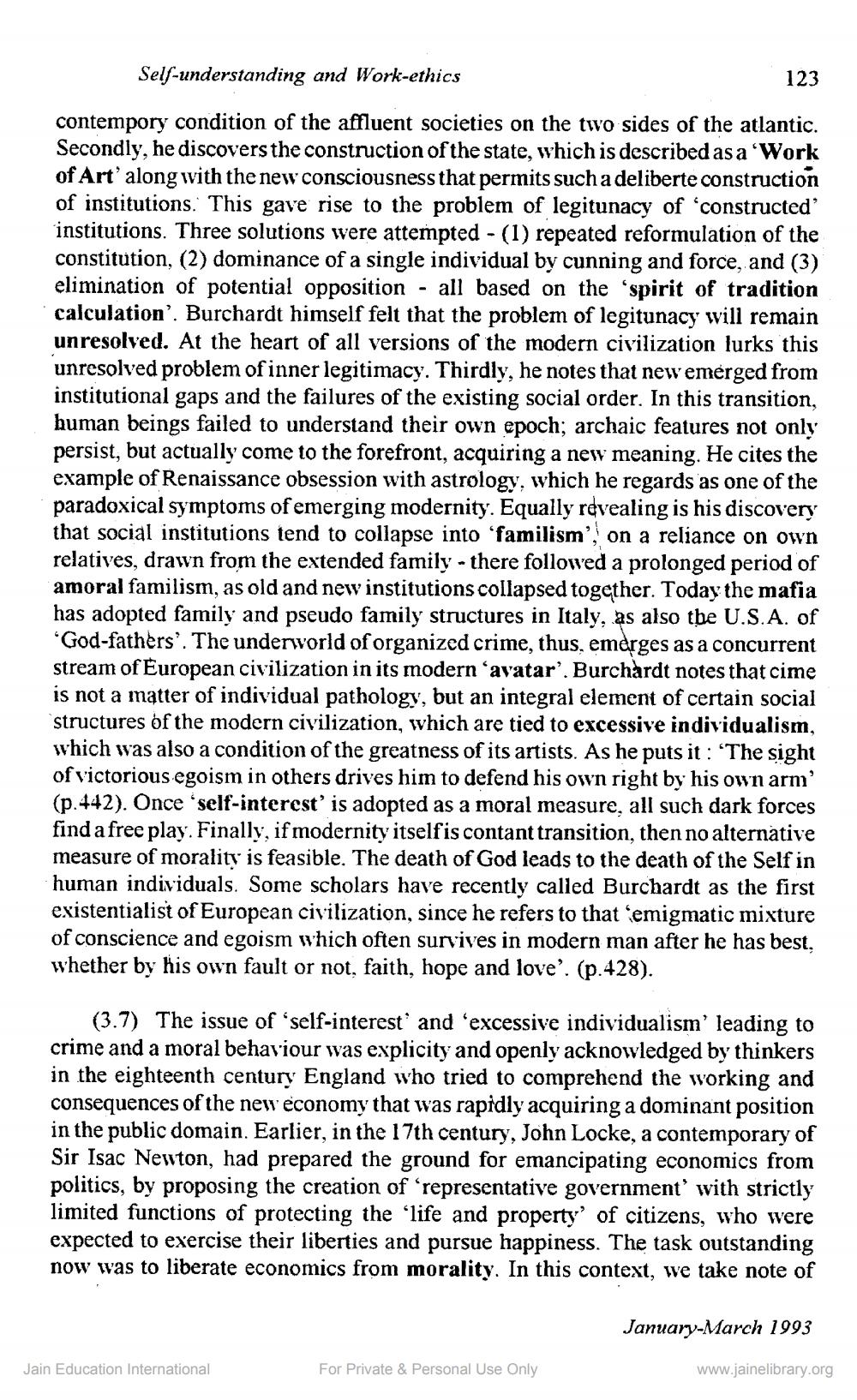________________
Self-understanding and Work-ethics
123
contempory condition of the affluent societies on the two sides of the atlantic. Secondly, he discovers the construction of the state, which is described as a 'Work of Art' along with the new consciousness that permits such a deliberte construction of institutions. This gave rise to the problem of legitunacy of 'constructed' institutions. Three solutions were attempted - (1) repeated reformulation of the constitution, (2) dominance of a single individual by cunning and force, and (3) elimination of potential opposition - all based on the spirit of tradition calculation'. Burchardt himself felt that the problem of legitunacy will remain unresolved. At the heart of all versions of the modern civilization lurks this unresolved problem of inner legitimacy. Thirdly, he notes that new emerged from institutional gaps and the failures of the existing social order. In this transition, human beings failed to understand their own epoch; archaic features not only persist, but actually come to the forefront, acquiring a new meaning. He cites the example of Renaissance obsession with astrology, which he regards as one of the paradoxical symptoms of emerging modernity. Equally revealing is his discovery that social institutions tend to collapse into 'familism', on a reliance on own relatives, drawn from the extended family - there followed a prolonged period of amoral familism, as old and new institutions collapsed together. Today the mafia has adopted family and pseudo family structures in Italy, as also the U.S.A. of 'God-fathers'. The underworld of organized crime, thus, emerges as a concurrent stream of European civilization in its modern avatar'. Burchardt notes that cime is not a matter of individual pathology, but an integral element of certain social structures of the modern civilization, which are tied to excessive individualism, which was also a condition of the greatness of its artists. As he puts it : “The sight of victorious egoism in others drives him to defend his own right by his own arm' (p. 442). Once 'self-interest' is adopted as a moral measure, all such dark forces find a free play. Finally, if modernity itself is contant transition, then no alternative measure of morality is feasible. The death of God leads to the death of the Self in human individuals. Some scholars have recently called Burchardt as the first existentialist of European civilization, since he refers to that emigmatic mixture of conscience and egoism which often survives in modern man after he has best, whether by his own fault or not, faith, hope and love’. (p.428).
(3.7) The issue of 'self-interest' and 'excessive individualism' leading to crime and a moral behaviour was explicity and openly acknowledged by thinkers in the eighteenth century England who tried to comprehend the working and consequences of the new economy that was rapidly acquiring a dominant position in the public domain. Earlier, in the 17th century, John Locke, a contemporary of Sir Isac Newton, had prepared the ground for emancipating economics from politics, by proposing the creation of 'representative government' with strictly limited functions of protecting the “life and property of citizens, who were expected to exercise their liberties and pursue happiness. The task outstanding now was to liberate economics from morality. In this context, we take note of
January-March 1993
Jain Education International
For Private & Personal Use Only
www.jainelibrary.org




